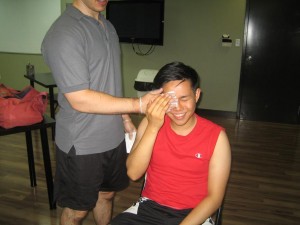Overview Of Dry Eyes
- Dry eyes take place when your eyes do not create enough tears.
- Tears are required to help keep sufficient moisture in your eyes. They help to keep the eye surface even and also help to guard the eyes from impurities.
- Dry eyes might sting or itch and can be very painful. You might experience dry eyes constantly or only during particular situations.
- For example, you might have dry eyes after looking at a PC for a long time, or when it is breezy outside. Both eyes are generally affected at the same time.
- Eye dryness will possibly affect everybody at one point. It is seldom serious and can generally be treated with medication.
Causes of Dry Eyes

There are several reasons why an individual might experience dry eyes. A few common primary causes are defined as follows:
Insufficient Production of Tears
In most individuals, dry eyes are produced by a low production of tears. Some causes why you may not create enough tears consist of:
- Old age (this is particularly applicable for women: after menopause, your risk for getting dry eye syndrome rises considerably).
- Lack of vitamin A.
- Other medical disorders such as lupus, diabetes, infections, allergies, rheumatoid arthritis, or a thyroid disorder.
- Injury to the tear glands, swelling, biochemical burns, heat, or radiation.
Medications
Certain drugs can cause dry eyes, including:
- High blood pressure medication.
- Decongestants.
- Allergy drugs, such as antihistamines.
- Antidepressants.
- Birth control pills.
- Hormone replacement therapies.
- Certain acne treatments.
Environmental Factors
Sometimes, elements of your environment or everyday life can lead to dry eyes, including:
- Wind.
- Dry air.
- Exposure to smoke.
- Working at a computer.
- Driving.
- Reading.
- Riding a bicycle.
- Flying in an airplane.
Related Video On Treating Dry Eyes
